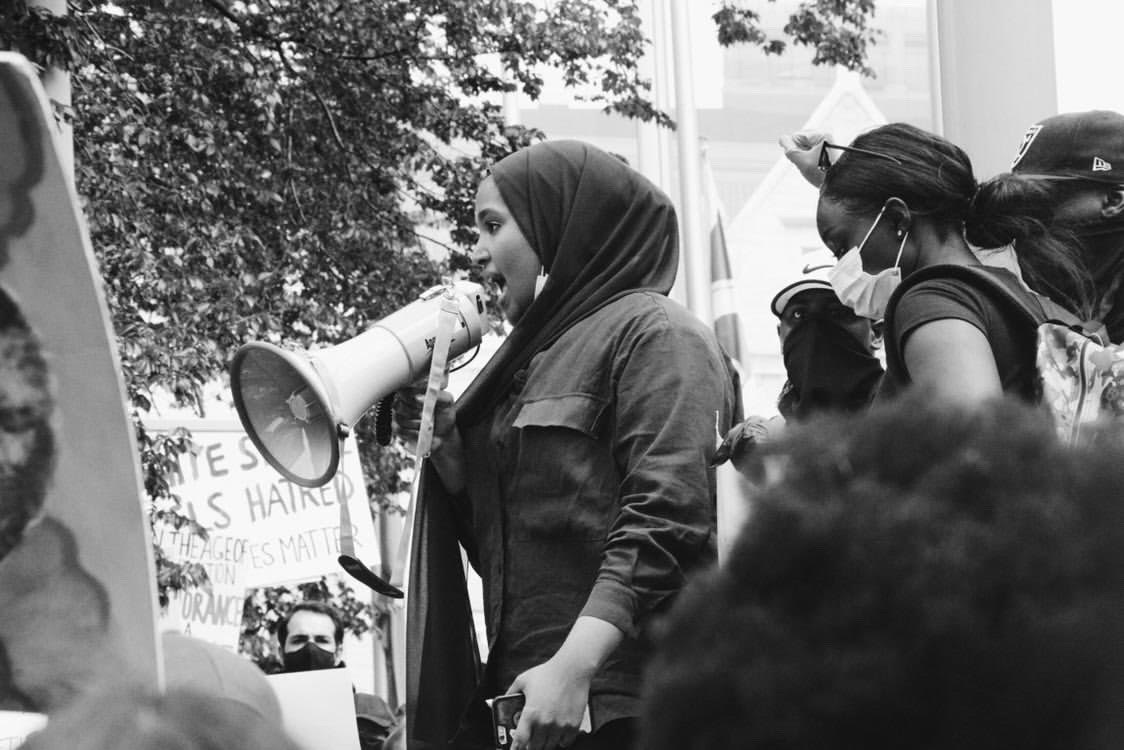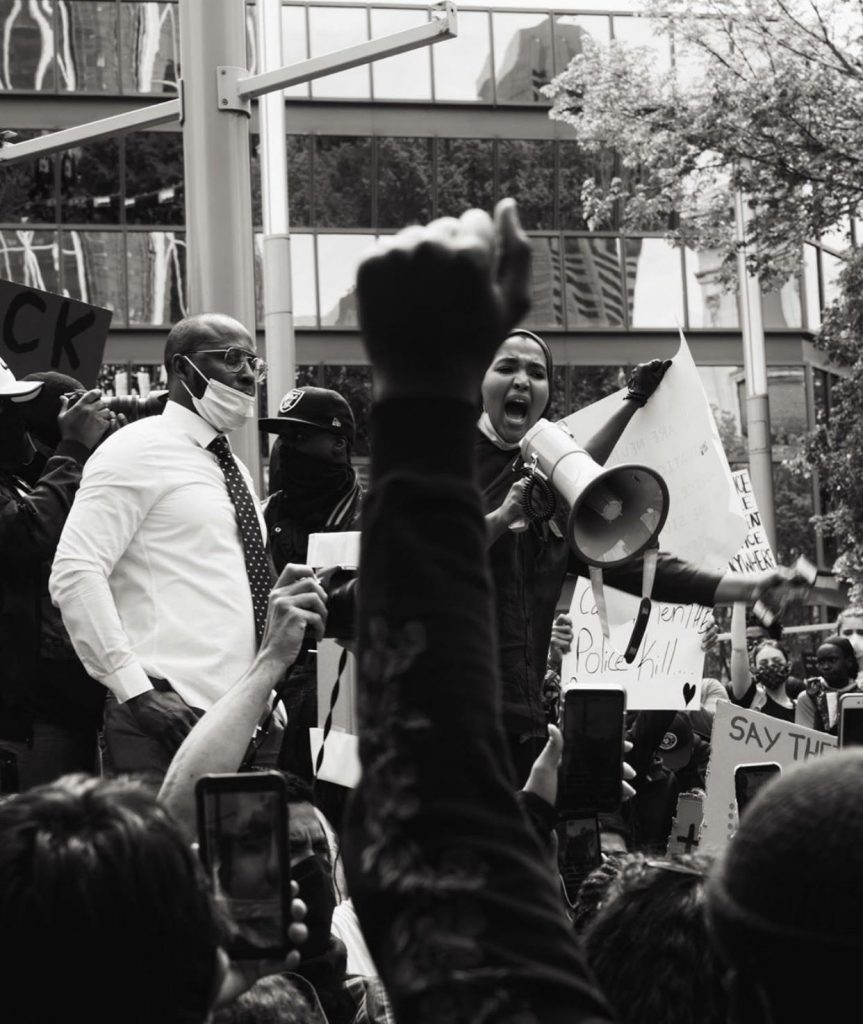
A fight for change: Q&A with Black Lives Matter movement advocate Mawa Khalid
By Duhaa Rahamatullah, June 25 2020—
Editor’s Note: Interviews were conducted via email. Content has been edited to reflect Canadian Press Style but the word choices and spelling of words that reflect the voice of the interviewee has been left largely unchanged.
A Canadian advocate for the Black Lives Matter movement, Mawa Khalid has contributed to protests, spreading awareness and fundraising as she fights for justice and equality. In light of recent events, Mawa has raised her voice in hopes of advocating for Black communities around the world. She does not consider herself an activist yet, as it’s “a title to be earned fighting in several fights for justice.”
“I just started to be more proactive and will continue to do so,” she says.
Her faith in the BLM movement and her goal to fulfill her duty in acquiring peace and justice for all is showcased in an email interview with the Gauntlet.
The Gauntlet: How did you become involved in the BLM movement? What inspired you to continue working for social change?
Mawa Khalid: I always have been interested in social activism — the world is deeply broken and I believe it’s my duty to try my hardest to fix it. The BLM movement in particular is something that I have no choice but to be a part of. I’m a Black woman whose father lived through segregation and who is a descendant of slaves. I’m not an advocate — I’m someone who is fighting for my right to live.
G: As a Canadian Person of Colour, have there been times where you have felt racially profiled and/or discriminated against? What has your experience been like?
MK: [I have been made] uncomfortable by stares, [people] following [me] in stores, jokes in school or someone moving away from [me] on the train. I had a man wearing a MAGA (Make America Great Again) hat tell me on the train to be careful and watch my back. […] I’m just like, ‘Check what country you’re in bud?’
G: What has your experience with the Black Lives Matter protests been like?
MK: One was pride, to see my fellow Calgarians of every colour come out peacefully and support a movement so close to you. In the same sense it was emotional to be a part of — it’s 2020, our lives shouldn’t have to [be] protested for in order to be seen as valued or equal.
G: What role do you think students can play in the Black Lives Matter movement?
MK: Students, in my opinion, hold the most power to cause change and reform. Speak up and continue to use your voice to advocate for justice, especially in your stream of education. If you see your professors or classmates display racist or discriminatory tendencies, CALL THEM OUT. Ask for your schools to talk about BLM, teach black history and uplift black students.
G: In what ways, do you believe, schools and other institutions should convey their efforts and commitment to the #BLM movement?
MK: Tying in to the last question, I think conversations need to be had. There isn’t proper education about Black history, and in that sense Indigenous history too. Everything is very whitewashed and dominated. Posting an announcement or an e-letter stating your alliance with the BLM movement is not allegiance unless your actions correlate. It’s just performative. Hire more Black teachers, ensure equal pay, create spaces for your Black students and if racist actions are displayed against them, punish and reprimand. Show your allyship through your actions.

G: What are your thoughts on Alberta’s Bill 1? Do you believe we are moving towards/away from equality and justice for all? How is the BLM movement impacted by the passing of Bill 1?
MK: Canada’s statements on not being racist are hilarious because you have contradictions, such as Bill 1, that are examples of oppression of voice. It’s our right to protest, and to pass such a bill strips us from that right. How do we now differentiate [from] a militant state such as the U.S? This just pushes us away from the pursuit of equality and justice. This affects [the] BLM movement because it would be considered an offense to protest on sidewalks, roads, or hold vigils in Olympic Plaza since they are under the umbrella of essential infrastructure. On a wider scale, when you try [to] silence people, [they] become more vocal and loud in their fights. I hope to see the BLM movement spark continuous needed changes. I hope that it nevers stops and we eradicate the problem. I truly think this is going to force the world to wake up […] I predict I will soon be able to see a world where Black Lives Matter isn’t a fight nor a question but rather a truth and a fact.
G: What message would you like to leave readers with?
MK: Do not stop talking about it. Media has significantly slowed down its reports on the BLM movement and protests worldwide in an attempt to make it seem as though it was a trend. The movement has not stopped; spread information, sign petitions, donate to bail funds, proper organizations that help those who fell victim to police brutality such as the Grassroots Law Project. Have conversations in your own own households about racism and challenge the beliefs of those who oppose it. Support Black business, Black creators, innovators, artists… Check your own privilege and seek out education. Lend a listening ear to your Black friends and be there for them. Try your hardest to create a world where color does not determine the length of your life.
